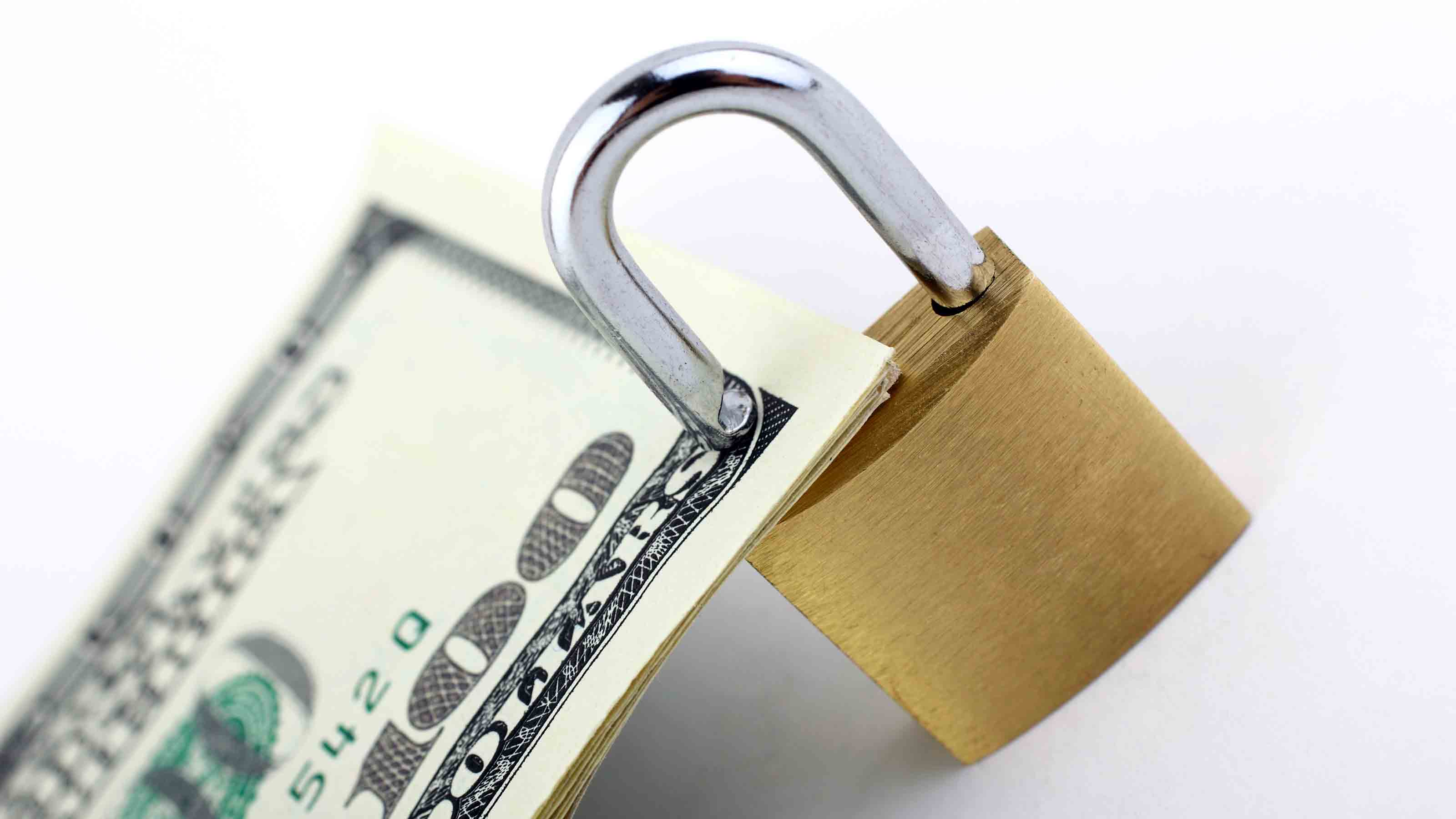The Fallout From Ukraine
Russia and Ukraine represent only a tiny portion of U.S. trade directly, but the impact of the invasion (and sanctions) is being felt by consumers here.


Profit and prosper with the best of Kiplinger's advice on investing, taxes, retirement, personal finance and much more. Delivered daily. Enter your email in the box and click Sign Me Up.
You are now subscribed
Your newsletter sign-up was successful
Want to add more newsletters?

Delivered daily
Kiplinger Today
Profit and prosper with the best of Kiplinger's advice on investing, taxes, retirement, personal finance and much more delivered daily. Smart money moves start here.

Sent five days a week
Kiplinger A Step Ahead
Get practical help to make better financial decisions in your everyday life, from spending to savings on top deals.

Delivered daily
Kiplinger Closing Bell
Get today's biggest financial and investing headlines delivered to your inbox every day the U.S. stock market is open.

Sent twice a week
Kiplinger Adviser Intel
Financial pros across the country share best practices and fresh tactics to preserve and grow your wealth.

Delivered weekly
Kiplinger Tax Tips
Trim your federal and state tax bills with practical tax-planning and tax-cutting strategies.

Sent twice a week
Kiplinger Retirement Tips
Your twice-a-week guide to planning and enjoying a financially secure and richly rewarding retirement

Sent bimonthly.
Kiplinger Adviser Angle
Insights for advisers, wealth managers and other financial professionals.

Sent twice a week
Kiplinger Investing Weekly
Your twice-a-week roundup of promising stocks, funds, companies and industries you should consider, ones you should avoid, and why.

Sent weekly for six weeks
Kiplinger Invest for Retirement
Your step-by-step six-part series on how to invest for retirement, from devising a successful strategy to exactly which investments to choose.
You don’t need us to tell you that Russia’s invasion of Ukraine—and Western sanctions on Russia—are playing havoc with your finances. You’re reminded of the pain afflicting your pocketbook every time you fill your gas tank. But the impact doesn’t end there. Americans are spending more at the supermarket, mortgage rates are higher, and investors have experienced big losses in their portfolios
Sanctions on Russia will exacerbate already high inflation, which reached 7.9% in February. Russia’s main contributions to the world economy are commodities—oil, gas, wheat, nickel, aluminum, palladium. To the extent that sanctions cut off those exports, prices will climb still higher. For the global economy, this is the biggest hit since the onset of COVID-19. How bad will it get?
The Hit to Household Budgets
The average price of a gallon of regular gas breached $4 in early March, and gas prices were quickly heading higher. To add even more price pressure, on March 8, President Biden said he was banning all imports of oil and natural gas from Russia. The United Kingdom also announced a ban on all Russian oil products by the end of the year. European Union officials unveiled a separate plan to cut Russian gas imports by about two-thirds this year. Replacing all those lost barrels of Russian oil and refined fuels probably can’t be done, at least in the near term, because Russia is the world’s third-largest oil producer after the U.S. and Saudi Arabia.
From just $107.88 $24.99 for Kiplinger Personal Finance
Become a smarter, better informed investor. Subscribe from just $107.88 $24.99, plus get up to 4 Special Issues

Sign up for Kiplinger’s Free Newsletters
Profit and prosper with the best of expert advice on investing, taxes, retirement, personal finance and more - straight to your e-mail.
Profit and prosper with the best of expert advice - straight to your e-mail.
How high will the price at the pump go? No one knows for sure, but count on it rising further. Continued gains in crude oil and gasoline futures contracts will keep filtering through to the gas pump. Prices have surpassed AAA’s record average high of $4.11 per gallon, set in 2008—although to top the 2008 high in today’s (inflation-adjusted) dollars, the national average price for regular unleaded would have to reach $5.25 per gallon. But if the conflict in Ukraine continues to worsen, and oil prices keep rising as a result of it, that figure could be in play this spring.
Some food prices have also spiked, and they will continue to. Russia and Ukraine together account for about 20% of global corn exports and 25% of wheat exports, as well as the vast majority of the world’s sunflower oil. Russia is also a top supplier of fertilizer.
What the Ukraine War Means to Your Investments
Stocks have gone up and down—but mostly down—since the invasion. In late February, the broad stock market, as measured by the S&P 500 index, fell into correction territory (typically defined as a drop of 10% to up to 20%) for the first time since 2020, and by early March, as Vladimir Putin’s troops made greater incursions into Ukraine and captured nuclear facilities, the tech-heavy Nasdaq entered a bear market—more than 20% off its peak.
But stock investors would be wise to keep calm and carry on, market strategists say. History shows stocks usually take global saber-rattling events in stride. And a well-maintained portfolio should weather such storms over the long haul, especially if you remain patient while also taking advantage of the opportunities that the market offers.
Inflation Will Be Hard to Avoid
For the Federal Reserve, a tough job just got a lot tougher. Rising energy and agricultural prices exacerbate worries about inflation—a top-of-mind anxiety for Main Street, Wall Street and the Federal Reserve alike. The Fed needs to rein in already-high inflation, which would mean raising interest rates aggressively to counteract the inflationary effects of the Ukraine invasion. But the central bank might be loath to raise rates too quickly, especially during times of geopolitical turmoil, lest it choke off economic growth and push the U.S. into a recession. Kiplinger expects the Fed to lift rates, but more cautiously than it had intended. That raises the risk of even worse inflation in coming months.
Look for U.S. inflation to stay higher for longer than initially expected, ending the year at a still-high 6.5%. Food and energy will likely be the main culprits.
Profit and prosper with the best of Kiplinger's advice on investing, taxes, retirement, personal finance and much more. Delivered daily. Enter your email in the box and click Sign Me Up.

Mark was the editor of Kiplinger's Personal Finance magazine from July 2017 to June 2023. Prior to becoming editor, he was the Money and Living sections editor and, before that, the automotive writer. He has also been editor of Kiplinger.com as well as the magazine's managing editor, assistant managing editor and chief copy editor. Mark has also served as president of the Washington Automotive Press Association. In 1990 he was nominated for a National Magazine Award. Mark earned a B.A. from University of Virginia and an M.A. in Writing from Johns Hopkins University. Mark lives in Washington, D.C., with his wife, and they spend as much time as possible in their Glen Arbor, Mich., vacation home.
-
 Ask the Tax Editor: Federal Income Tax Deductions
Ask the Tax Editor: Federal Income Tax DeductionsAsk the Editor In this week's Ask the Editor Q&A, Joy Taylor answers questions on federal income tax deductions
-
 States With No-Fault Car Insurance Laws (and How No-Fault Car Insurance Works)
States With No-Fault Car Insurance Laws (and How No-Fault Car Insurance Works)A breakdown of the confusing rules around no-fault car insurance in every state where it exists.
-
 Why Picking a Retirement Age Feels Impossible (and How to Finally Decide)
Why Picking a Retirement Age Feels Impossible (and How to Finally Decide)Struggling with picking a date? Experts explain how to get out of your head and retire on your own terms.
-
 9 Types of Insurance You Probably Don't Need
9 Types of Insurance You Probably Don't NeedFinancial Planning If you're paying for these types of insurance, you may be wasting your money. Here's what you need to know.
-
 Money for Your Kids? Three Ways Trump's ‘Big Beautiful Bill’ Impacts Your Child's Finances
Money for Your Kids? Three Ways Trump's ‘Big Beautiful Bill’ Impacts Your Child's FinancesTax Tips The Trump tax bill could help your child with future education and homebuying costs. Here’s how.
-
 Key 2025 Tax Changes for Parents in Trump's Megabill
Key 2025 Tax Changes for Parents in Trump's MegabillTax Changes Are you a parent? The so-called ‘One Big Beautiful Bill’ (OBBB) impacts several key tax incentives that can affect your family this year and beyond.
-
 Amazon Resale: Where Amazon Prime Returns Become Your Online Bargains
Amazon Resale: Where Amazon Prime Returns Become Your Online BargainsFeature Amazon Resale products may have some imperfections, but that often leads to wildly discounted prices.
-
 What Does Medicare Not Cover? Eight Things You Should Know
What Does Medicare Not Cover? Eight Things You Should KnowMedicare Part A and Part B leave gaps in your healthcare coverage. But Medicare Advantage has problems, too.
-
 QCD Limit, Rules and How to Lower Your 2026 Taxable Income
QCD Limit, Rules and How to Lower Your 2026 Taxable IncomeTax Breaks A QCD can reduce your tax bill in retirement while meeting charitable giving goals. Here’s how.
-
 Roth IRA Contribution Limits for 2026
Roth IRA Contribution Limits for 2026Roth IRAs Roth IRAs allow you to save for retirement with after-tax dollars while you're working, and then withdraw those contributions and earnings tax-free when you retire. Here's a look at 2026 limits and income-based phaseouts.
-
 Four Tips for Renting Out Your Home on Airbnb
Four Tips for Renting Out Your Home on Airbnbreal estate Here's what you should know before listing your home on Airbnb.